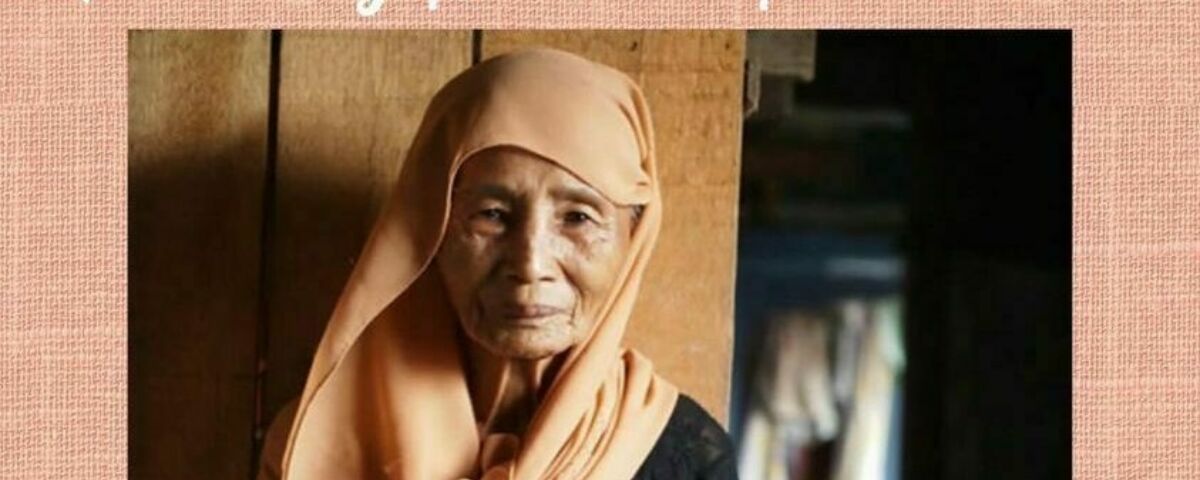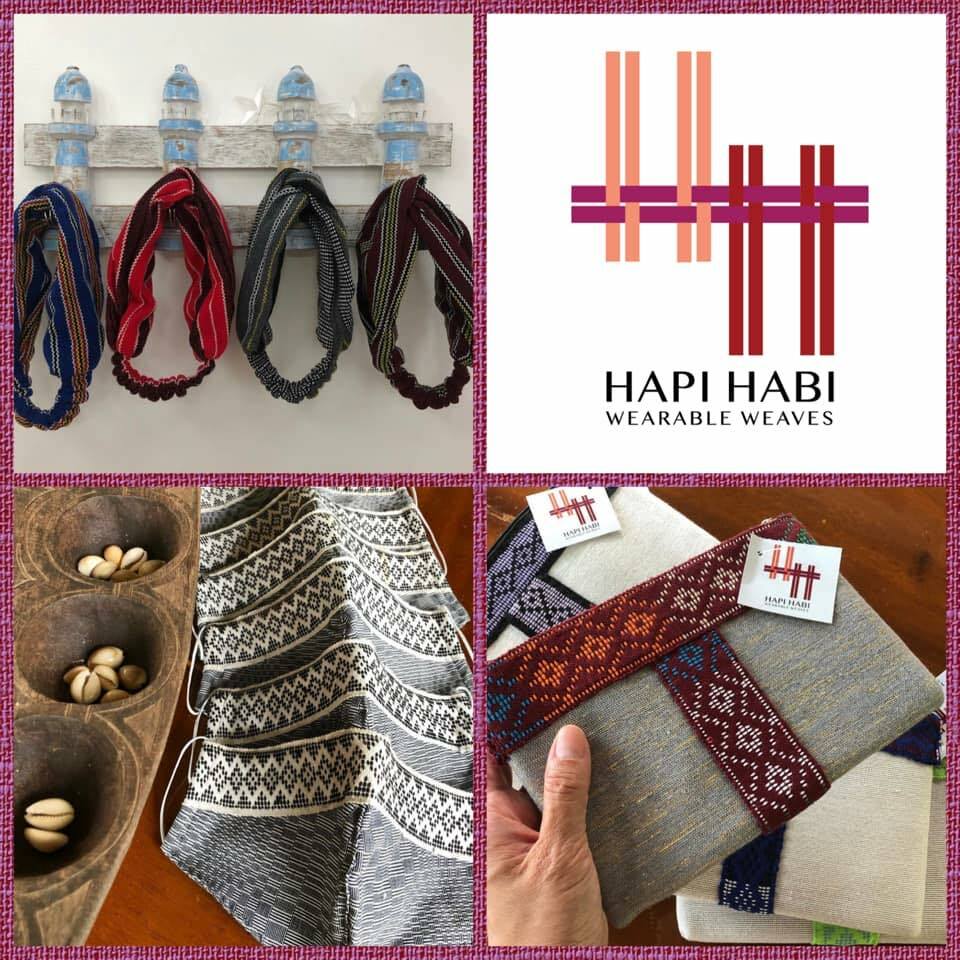




Keep this story going! Share below!
HapiHabi Wearable Weaves is a social enterprise that uplifts local Filipino weavers by transforming traditional weaves into fashionable daily wearables. This innovative business model provides a sustainable livelihood for the weavers and promotes cultural preservation and environmental sustainability. In doing so, HapiHabi directly contributes to the UN Sustainable Development Goals, particularly Goal 1: No Poverty, Goal 8: Decent Work and Economic Growth, Goal 10: Reduced Inequalities, and Goal 12: Responsible Consumption and Production.
HapiHabi Wearable Weaves is a unique social enterprise based in the Philippines and founded by Atty. Evie. HapiHabi redefines the fashion industry through its innovative approach to sustainable and inclusive growth. HapiHabi’s business model centers around creating wearable weaves that embody beauty and affordability and deeply root themselves in Filipino heritage. Local artisans craft these weaves, receiving fair compensation for their work and ensuring their artistry is valued and recognized.
The innovation of HapiHabi lies in its commitment to making daily wearable weaves that showcase Filipino culture while promoting cultural preservation and economic growth. HapiHabi actively contributes to SDG 8: Decent Work and Economic Growth by providing a platform for local artisans to sell their weaves through social media and support their livelihoods. HapiHabi’s focus on sustainable fashion and responsible consumption aligns with SDG 12: Responsible Consumption and Production, as it promotes conscious and ethical fashion choices. “HapiHabi uses simple clothing or thrift store finds as the base in making the weaves. The sewists weave these into beautiful and fashionable pieces. It’s that simple! And by using old clothes from thrift stores not only promotes sustainability but also adds uniqueness to the weave,” Atty. Evie explains. “What sets HapiHabi apart from other high-end woven fashionwear is that other companies make these high-ends from scratch. That makes them expensive,” Atty. Evie adds. By incorporating unique designs onto base clothes, HapiHabi ensures that the final product is affordable and sustainable, contributing to responsible consumption and production in line with SDG 12.

Atty. Evie sewed the seeds of HapiHabi in the vibrant atmosphere of the ArteFino Festival in 2019. She was captivated by the display of world-class Filipino art products, including woven fashionwear. However, the steep prices of these items struck a chord with her. “I saw world-class products but found them quite expensive,” Atty. Evie recalls. “I thought I’d make my wearable weaves instead of buying. Because that’s who I am. I am thrifty!”
As a former executive at the Bangko Sentral ng Pilipinas, Evie traveled a lot for her job. She saw these trips as a chance to show off her country’s culture to people worldwide. “I started making my clothes so that when I go abroad at international conferences, I could showcase the country’s culture and become - an ambassadress of Filipino culture aside from promoting Investor Relations.” Atty. Evie also saw how people in Indonesia live changed her ideas about HapiHabi even more. “My husband worked before in Indonesia as an expat. I saw that Indonesians wear their Batiks daily. I realized that Filipinos only showcase our indigenous clothes during weddings or Buwan ng Wika, or if there’s a big event or pageant. We don’t have daily wears showcasing these beautiful weaves.
This realization inspired an idea to create daily wearable weaves that were beautiful, affordable, and worthy of Filipino pride. “I thought to myself, I want to make a daily wearable weave that is affordable, is beautiful, and something that you could be proud of that showcases the country’s heritage,” Atty. Evie shares.
At the heart of HapiHabi is a deep-seated desire to uplift lives. As Evie remarks, “I helped these local seamstresses realize their worth and potential. In the short run, I assisted them in getting their own bank accounts and sewing machines. The HapiHabi weaves they create now enable them to earn a fair income, far from the meager pay they received. I pay them competitively.” This initiative directly aligns with SDG 1: No Poverty, SDG 8: Decent Work and Economic Growth, and SDG 10: Reduced Inequalities.
In 2017, the war in the Islamic City of Marawi displaced thousands of people, leaving the city in ruins. Amid the despair, a weaver reached out to Atty. Evie. She recalls, “The weaver from Marawi showed me sample weaves costing about P6,000.00. I took a chance. I do not even know her, but I sent her the money. If this person were a scammer, I’d think I helped in the rebuilding efforts for Marawi City; however, if she were a legitimate supplier, then good! I gained a new weaver and a partner in making indigenous weaves.” To Evie’s surprise, the weaver made good on the deal and sent the weaves. This partnership led to a significant shift in the Islamic City of Marawi’s financial situation, creating ripples in an unbanked sector and making it one step closer to financial inclusivity. This transformation aligns with SDG 1: No Poverty and SDG 10: Reduced Inequalities.
HapiHabi has made a long-lasting impact in empowering and creating ripple effects in the lives of these seamstresses. Atty. Evie emphasizes, “Through HapiHabi, the weaver’s family and lives are elevated. Their family gets inspired by their work.” As Atty. Evie shares, “These seamstresses have pride in work when making HapiHabi weaves. It’s not a mindless job. They appreciate that they create value.” The transparency and fair pay practices employed by HapiHabi contribute to SDG 10: Reduced Inequalities, closing the income gap, and recognizing the value of the sewists’ work. HapiHabi’s impact is not limited to the immediate beneficiaries but extends to the broader community. The evidence of this impact can be seen in the improved livelihoods and increased pride among the weavers and sewists associated with HapiHabi.
Unlike other profit-centric brands, HapiHabi is committed to helping people and creating a sustainable business. Atty. Evie shares, “The difference between HapiHabi and the other brands is that other brands are profit-centric. As for HapiHabi, I take pride that I get to help people.” This focus on social impact sets HapiHabi apart and resonates with customers who value ethical and socially responsible practices.
Another unique aspect of HapiHabi’s business model is its commitment to transparency, extending to the openness of its supplier network. Atty. Evie explains, “Through HapiHabi since I am not here for the profit, I disclose my suppliers online. If you want to buy the weaves and buy directly from my partner weavers, I allow them to. This way, the network of my partner weavers grows. As a result, they become more profitable. They get more followers through HapiHabi. I am happy that my weavers create a greater reach for their market.” This strategy not only boosts the livelihood of the weavers but also endears the brand to consumers who appreciate the transparency in support of artisans.
HapiHabi’s transparency and unique approach to production contribute to its success. Atty. Evie adds, “All of my items are one-offs, each unique. I don’t have a physical store. You can only buy through public bidding through social media when I post. All items sell out fast, leaving me with no inventory!” This limited availability and high demand create a sense of exclusivity and urgency among customers. Atty. Evie’s commitment to transparency is evident in how she openly shares prices and measurements, allowing weavers to see the value and profit generated from their work. This transparency fosters trust and strengthens the partnership between HapiHabi and its weavers.
HapiHabi’s innovative business approach benefits society and the environment. Atty. Evie shares, “The biggest challenge for HapiHabi is how to grow. I want to grow in such a way that prices are still competitive. I engage partner weavers since I do not want to add overhead costs. What makes HapiHabi stand out are the unique designs. Customers know that what they buy is their own and nothing is alike in the market.” By continuously offering unique pieces, HapiHabi satisfies customer demand for individuality and exclusivity, which contributes to reducing waste in the fashion industry and resonates with SDG 12: Responsible Consumption and Production.
Atty. Evie’s vision goes beyond the immediate business objectives. She aims to establish a sewing center in Lipa City, Batangas, where local women can have flexible working arrangements and pursue a work-life balance. This vision aligns with SDG 8: Decent Work and Economic Growth, providing opportunities for sewists to engage in meaningful work while respecting their personal needs and aspirations. Additionally, HapiHabi plans to offer training programs in collaboration with the Philippines’ Technical Education and Skills Development Authority to promote skill development and the Bangko Sentral ng Pilipinas’ Economic and Financial Learning Office to educate on basic financial concepts. This commitment to education and skill-building supports empowerment and financial inclusivity towards SDG 10: Reduced Inequalities.
In the post-COVID era, HapiHabi envisions a physical store transcending traditional retail. Atty. Evie plans to construct an experiential store-slash-café, allowing customers to enjoy local delicacies and interact with the weavers who create the HapiHabi weaves. By integrating various elements, HapiHabi can provide a unique shopping experience and promote local culture and community engagement.
Get stories of positive business innovations from around the world delivered right to your inbox.
Atty. Elizabeth Victoria L. Medina-Navarro, Artistic Director
HapiHabi is a social enterprise that combines the rich tapestry of Filipino culture and the art of weaving. The platform empowers local weavers, particularly women, by providing them with sustainable livelihood. Through HapiHabi, indigenous weaves are transformed into daily wearables, each telling a unique heritage and craftsmanship story. The business operates on principles of fair trade, sustainability, and cultural preservation, making it not just a fashion brand but a movement for social change.